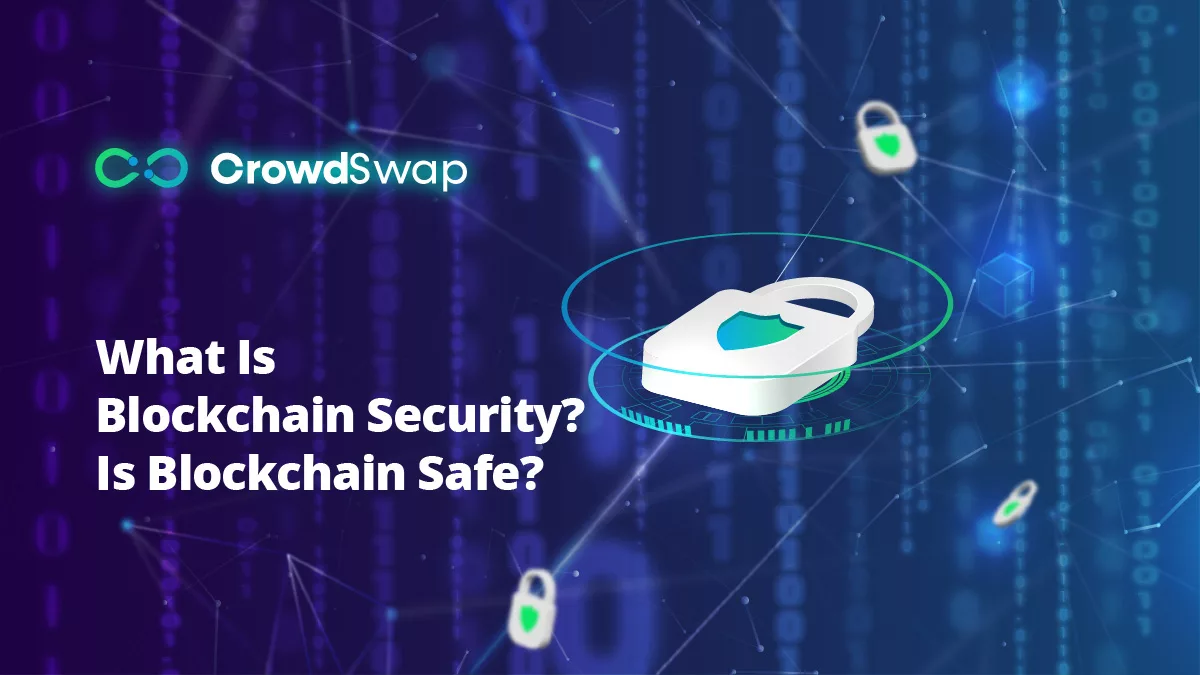It was late in the evening. As Alex, a young and ambitious software engineer, was scrolling through the latest news in the blockchain world, he stumbled upon a chilling headline that sent shivers down his spine: “Millions in Cryptocurrency Vanish in Daring Cyber Heist!” The story described how a group of hackers had exploited a vulnerability in a prominent cryptocurrency exchange, making off with millions of dollars worth of digital assets.
The audacious heist had left the blockchain community in shock and raised a critical question: Is blockchain technology truly secure? With every keystroke, Alex could feel the weight of that question pressing upon him. He knew he had to dive deeper into the world of blockchain security to find answers and protect the very technology he cherished.
As Alex delved into the intricacies of blockchain security, he discovered a captivating world of cryptography, consensus mechanisms, and ingenious smart contracts. These were the formidable guardians standing against the nefarious forces seeking to exploit the vulnerabilities of blockchain networks. Alex’s journey became an exploration of cutting-edge technologies and best practices designed to fortify the digital fortresses of blockchain systems.
In this blog post, I shall unravel the enigma of blockchain security and seek to answer the burning question: is blockchain safe? Join me as I traverse the intricate landscape of safeguarding the future of decentralized technology, where trust is built upon the foundation of unbreakable chains.
What is Blockchain and Why It’s Essential
At its core, blockchain is a revolutionary technology that has the potential to reshape the digital landscape as we know it. Imagine a vast, decentralized ledger spread across countless computers worldwide, each entry linked to the one before it, creating an unbroken chain of information. This is the essence of blockchain – an incorruptible and transparent ledger that holds the history of every transaction or data exchange ever recorded.
Unlike traditional centralized systems, where power and control rest in the hands of a single entity, blockchain operates on a peer-to-peer network, distributing authority across its participants. This decentralized nature not only eliminates the need for intermediaries but also enhances security, as there is no single point of failure vulnerable to attacks.
The idea of blockchain first emerged alongside the creation of Bitcoin, the world’s first cryptocurrency, back in 2009. However, its potential far surpassed the realm of digital currencies. Blockchain technology found application in various industries, from finance and supply chain management to healthcare and real estate.
In finance, blockchain disrupted the traditional banking model, offering faster and more cost-effective cross-border transactions. It brought financial services to the unbanked and revolutionized the concept of digital assets.
In supply chain management, blockchain introduced a new era of traceability, ensuring transparency and accountability at every stage of the production and distribution process. This not only combated counterfeit products but also addressed ethical concerns regarding labor conditions and sourcing of raw materials.
In healthcare, blockchain enabled the secure and seamless sharing of patient data between healthcare providers, enhancing the efficiency of diagnostics and treatment while maintaining patient privacy.
The applications of blockchain are endless, promising to transform industries by fostering trust, reducing costs, and streamlining processes. However, as its usage expanded, so did the urgency to address the elephant in the room – security.
With its decentralized and immutable nature, blockchain might seem impervious to tampering, but the reality is more complex. As the great cryptocurrency heist demonstrated, blockchain is not immune to cyberattacks, and its security must be fortified to withstand evolving threats. But before we jump right into the blockchain security challenges, it’s essential to have a quick review of the features of blockchain technology.
Key Features of Blockchain Technology
To understand why blockchain security is of paramount importance, we must first grasp the fundamental features that make this technology a game-changer in the digital world.
- Decentralization: One of the defining characteristics of blockchain is its decentralized nature. Traditional systems often rely on a central authority to validate and process transactions, leaving them susceptible to single points of failure. In contrast, blockchain operates on a vast network of nodes, each maintaining a copy of the ledger. This decentralization not only ensures fault tolerance but also eliminates the need for intermediaries, making transactions more efficient and cost-effective.
- Immutability: Once a transaction is recorded on the blockchain, it becomes nearly impossible to alter or delete. Each block in the chain contains a unique cryptographic hash, linking it to the previous block, creating an irreversible history. This immutability makes blockchain an ideal tool for ensuring data integrity, as it provides a reliable and tamper-proof record of events.
- Transparency: Transparency lies at the core of blockchain’s appeal. All participants in the network can view the entire transaction history, promoting accountability and trust among users. This feature is especially crucial in industries like supply chain management and finance, where stakeholders demand transparency to verify the authenticity and legitimacy of transactions.
- Security through Consensus: Blockchain employs consensus mechanisms to achieve agreement among network participants on the validity of transactions. Different blockchain networks use various consensus algorithms, such as Proof of Work (PoW) and Proof of Stake (PoS), each designed to prevent fraudulent activities and ensure the accuracy of the ledger.
- Cryptography: At the heart of blockchain security lies the cryptographic techniques that protect the integrity and confidentiality of data. Transactions are encrypted and linked with digital signatures, ensuring that only authorized users can access and verify the information. Cryptography is the backbone of blockchain security, thwarting unauthorized access and ensuring privacy.
These key features collectively contribute to the strength and appeal of blockchain technology, but they also pose unique challenges when it comes to security. As we explore the world of blockchain security challenges and solutions, we shall uncover how these features play a crucial role in fortifying the digital fortress of blockchain networks against the relentless tide of cyber threats.
With the foundation laid and the secrets of blockchain’s core features unveiled, let us now delve into the realm of blockchain security challenges – a perilous journey into the world of digital intrigue and defense. Join us as we unlock the mysteries behind the great enigma – “Is blockchain safe?”
Blockchain Security Challenges
In the ever-evolving landscape of cybersecurity, blockchain technology faces its fair share of challenges. While the foundational elements of blockchain, such as decentralization and immutability, provide inherent security benefits, there are still vulnerabilities that determined hackers can exploit. Let’s explore some of the key challenges that pose a threat to blockchain security.
51% Attacks
One of the most feared threats to blockchain networks is the 51% attack. In a proof-of-work blockchain, such as Bitcoin, a 51% attack occurs when an individual or group gains control over the majority of the network’s mining power. This allows them to manipulate the blockchain’s consensus and potentially double-spend coins, disrupt transactions, or rewrite transaction history. While such attacks are challenging to execute on well-established blockchains, smaller or newer networks may be at greater risk. The sad thing is, it’s happened for quite some instances in the early stages of blockchain technology, even for Bitcoin and Ethereum, when there were not many nods in the network!
Smart Contract Vulnerabilities
Smart contracts, which automate and execute specific actions when predefined conditions are met, have revolutionized various industries. However, they are not without risks. Coding errors or vulnerabilities in smart contracts can lead to catastrophic consequences. Exploiting these flaws, malicious actors can drain funds from smart contracts or manipulate them to their advantage, as witnessed in infamous incidents like the DAO hack.
Distributed Denial of Service (DDoS) Attacks
Although blockchain’s decentralized nature reduces the risk of traditional DDoS attacks, networks with specific vulnerabilities can still be susceptible. For example, if attackers target the nodes or miners, they can potentially disrupt the network’s functioning and halt transaction processing.
Quantum Computing Threat
While still an emerging technology, quantum computing poses a future threat to blockchain security. Quantum computers have the potential to break the cryptographic algorithms used in many blockchain systems, compromising the security of transactions and private keys.
Social Engineering and Phishing
The human element remains a significant weak point in any security system. Social engineering attacks and phishing attempts target individuals, tricking them into revealing sensitive information or providing access to their wallets or accounts. Blockchain users must remain vigilant and educated to avoid falling victim to these schemes.
Regulatory and Compliance Challenges
As blockchain technology gains widespread adoption, it faces regulatory and compliance challenges. Navigating different legal frameworks and ensuring adherence to regulations can be complex, particularly in industries with stringent data privacy requirements.
Suggested read: 6 Biggest Crypto Hacks of All Time
Blockchain Security Solutions
To counter the formidable challenges posed to blockchain security, the industry has devised ingenious solutions that reinforce the resilience and trustworthiness of blockchain networks. Let’s delve into some of the key security measures that safeguard the integrity of this groundbreaking technology:
Multi-Signature Transactions
Multi-signature (multi-sig) transactions require multiple authorized parties to sign off on a transaction before it is executed. This feature enhances security, reducing the risk of single points of failure. Multi-sig wallets have become a popular choice for users and organizations seeking extra layers of protection for their digital assets.
Cold Storage
Storing cryptocurrencies and private keys in cold wallets or hardware wallets provides an offline and secure solution against hacking attempts. Cold storage significantly reduces the exposure of assets to potential cyber threats.
Smart Contract Auditing
To mitigate the risks associated with smart contract vulnerabilities, comprehensive auditing is essential. Thoroughly reviewing and testing smart contracts before deployment can identify potential weaknesses and ensure that they function as intended. Auditing information should be available to the public, such as projects like CrowdSwap, which is fully audited and provides its auditing information on GitHub.
Penetration Testing and Bug Bounties
Many blockchain projects employ penetration testing and bug bounty programs to identify and address security flaws. Ethical hackers are incentivized to discover and report vulnerabilities, thereby strengthening the system’s overall security.
Privacy Enhancements
While blockchain offers transparency, some applications require privacy. Advanced cryptographic techniques, such as zero-knowledge proofs and ring signatures, enable privacy enhancements without compromising security.
Regulatory Compliance and Auditing Tools
For blockchain solutions that deal with sensitive data or financial transactions, adhering to regulatory requirements is crucial. Tools and protocols that enable auditing and compliance with regulatory standards enhance security and trust.
Constant Updates and Community Involvement
Regular updates to the blockchain protocol and active community involvement play a vital role in maintaining security. Promptly addressing emerging threats and potential vulnerabilities ensures that the system remains resilient and protected.
Are you scared already?! Well, don’t! There are a handful of tips you can follow to stay safe in the world of blockchain and cryptocurrencies. We’ve gathered all you need to know in our guide about how to improve your DeFi wallet security.
Endless Opportunities Await
Unlock endless possibilities with our feature-packed decentralized crypto exchange
Conclusion: Is Blockchain Safe?
As we followed Alex, the young and ambitious software engineer, on his journey into the world of blockchain security, we witnessed the complexities and wonders that this revolutionary technology holds. The audacious cryptocurrency heist served as a stark reminder of the challenges that blockchain faces in a world of ever-evolving cyber threats.
Throughout this exploration, we unraveled the key features that make blockchain essential – its decentralized nature, immutability, and transparency. We also discovered the ingenious security solutions that fortify this technology, from consensus mechanisms to advanced cryptography and smart contract auditing. Yet, Alex realized that the journey towards a secure blockchain ecosystem requires continuous collaboration, vigilance, and adherence to best practices by all participants. By embracing transparency, community involvement, and constant innovation, we can build a stronger foundation for a safer and decentralized future powered by blockchain technology. So, let us embark on this collective endeavor and nurture the unbreakable chains of trust and security that lie at the heart of blockchain’s promise.
FAQ
Which type of blockchain is safe and secure?
Private blockchains are generally considered more secure than public blockchains due to the controlled verification processes they employ for recording information.
Is blockchain safe in cryptocurrency?
Yes, blockchain in cryptocurrency is relatively safe due to its cryptographic nature and decentralized network, making data alteration virtually impossible once added to the blockchain.
Can a blockchain be hacked?
The blockchain itself is considered highly secure against hacking, but processes around it can be vulnerable to manipulation and theft.













